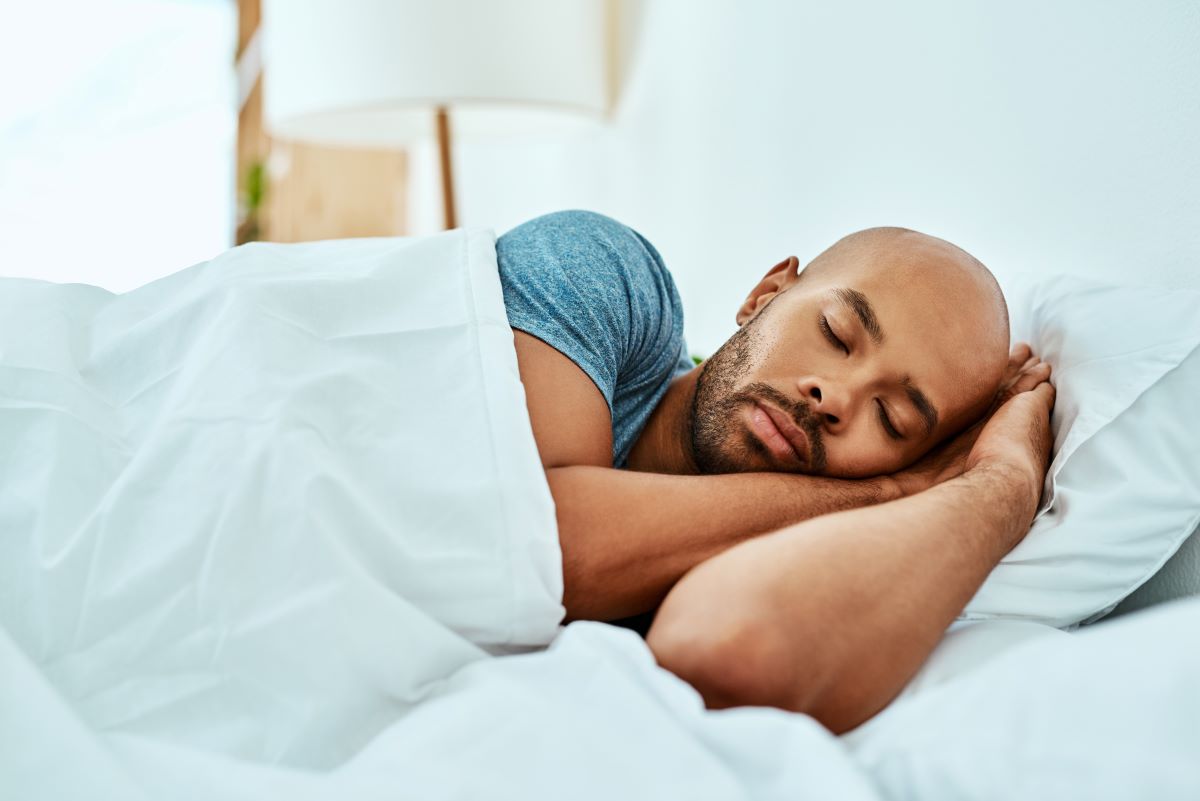Neat Little Guide — 6 minutes
Sleep hygiene
November 20, 2025


What is sleep hygiene?
Sleep hygiene is a set of practices aimed at promoting restorative sleep. Although it can’t cure physiological sleep disorders such as obstructive sleep apnea, it can significantly reduce their harmful effects on your health.
Here are a few examples of good sleep hygiene practices:
- Avoid stimulants such as caffeine, energy drinks, and nicotine before bedtime. Also avoid alcohol, heavy meals, and intense exercise.
- As your bedtime approaches, relax: read, listen to music, take a bath. Stop all interaction with your electronic devices (smartphone, computer, TV).
- Learn to recognize when you are getting sleepy (e.g. nighttime chills, heavy eyelids). If you are working the night shift, your eyes may feel gritty. These are signs that it is time to sleep. Going to bed as soon as you notice them makes it easier to fall asleep.
- Create a cool, quiet, dark, and comfortable bedroom environment. Reserve your bed for sleep or intimacy so that your brain associates it with rest.
- If you are still awake after 20 minutes, get up and do a monotonous or repetitive activity that doesn’t require physical effort but does require mental effort (reading, crossword puzzle, sudoku). These activities will tire your brain without physical stimulation. As soon as you feel the signs of sleep, go back to bed.
- Establish a sleep routine: go to sleep and wake up at the same time every day.
- Adopt healthy lifestyle habits, such as regular exercise, a healthy diet, and staying hydrated. However, limit your fluid intake about one to two hours before bedtime to avoid waking up during the night.
Join the Biron community
Receive educational content, tips, and offers on health and wellness.
When is good sleep hygiene particularly important?
Everyone can benefit from good sleep hygiene, but it becomes crucial in certain situations:
- wanting to go back to sleep when the alarm rings or having difficulty getting up in the morning;
- an atypical work schedule, refer to shifts outside the period of 8 a.m. to 6 p.m. More than a quarter of all workers in Quebec work this type of schedule. Atypical work schedules increase the risk of developing cardiovascular and digestive disorders and obesity, among others. They are also associated with a higher incidence of depression and anxiety, alcohol abuse, and suicidal thoughts. Atypical work schedules also affect sleep quality and efficiency compared to a daytime shift [1].
- insufficient sleep duration. The National Sleep Foundation [2] recommends 7 to 9 hours of sleep per night for adults between the ages of 18 and 64, and 7 to 8 hours for seniors age 65 and over.
- difficulty adjusting to jet lag;
- seasonal depression;
- circadian rhythm disorder;
- a combination of sleep apnea and insomnia (condition called COMISA) [3].
If you are familiar with these symptoms, you’re not alone!
According to Statistics Canada [4]:
- 43% of men and 55% of women aged 18 to 64 report having trouble going to sleep or staying asleep “sometimes/most of the time/all of the time”;
- About one third (33% of people aged 18 to 64 and 30% of seniors) say they have difficulty staying awake during normal waking hours “sometimes/most of the time/all of the time.”
Structured support program for quality sleep
There is plenty of advice online on how to sleep better. Yet, many people continue to suffer from sleep disorders. Often, these recommendations lack structure, personalization, and follow-up—essential elements when an underlying disorder requires special attention.
Our structured insomnia treatment program incorporates these elements to provide comprehensive, personalized support for each individual. And it’s not just for insomniacs!
Depending on the case, one to four consultations may be necessary:
- Step 1: assessing the quality of your sleep with the help of a questionnaire and providing personalized information to help you better understand sleep, and consequently, adopt behaviours conducive to good sleep.
- Step 2: reviewing your sleep diary and developing an action plan and tools to help you achieve your goals for restful sleep. Depending on the strategies implemented, a follow-up call may take place between sessions.
- Step 3: following your action plan to ensure that it has a positive effect on your sleep quality and quality of life. Other tools may be incorporated to help you maintain your progress in the long term and reduce the likelihood of relapse. Additional consultations and a reinforced action plan may be proposed if needed.
Each consultation is provided by a respiratory therapist with sleep health certification. At any time during the process, the healthcare professional may, if necessary, provide a referral for a sleep assessment test or for cognitive behavioural therapy for insomnia (CBT-I) [5].
For professional support, we are here to help you.
We offer services that can assist your doctor in diagnosing sleep disorders and determining the appropriate treatment.
Do you have a medical prescription for a sleep test? Book an appointment online or contact Biron Health Group’s customer service at 1 833 590-2713.
Sources5
- “Horaire atypique, travail de nuit et trouble du sommeil”. n.d Fondation Sommeil. Consulted on November 19, 2025. https://fondationsommeil.com/troubles-du-sommeil/horaire-atypique/#:~:text=Personnes%20touch%C3%A9es%20par%20un%20horaire%20atypique&text=Son%20rythme%20circadien%20d%C3%A9r%C3%A9gl%C3%A9%20et,affirment%20souvent%20%C3%AAtre%20constamment%20fatigu%C3%A9s.
- Hirshkowitz, Max, Kaitlyn Whiton, Steven M Albert and Cathy Alessi. 2015. “National Sleep Foundation’s updated sleep duration recommendations: Final report”. Sleep Health 1 (4): 233–243. doi:10.1016/j.sleh.2015.10.004.
- “Insomnia and sleep apnea: An exhausting duo”. n.d. Biron Health Group. Consulted on November 19, 2025. https://www.biron.com/en/comisa/.
- Statistics Canada. 2017. Duration and quality of sleep among Canadians aged 18 to 79. Canada. https://www150.statcan.gc.ca/n1/pub/82-003-x/2017009/article/54857-eng.htm.
- Edinger, Jack D, J. Todd Arnedt, Suzanne M. Bertisch, Colleen E. Carney. 2021. “Behavioral and psychological treatments for chronic insomnia disorder in adults: an American Academy of Sleep Medicine clinical practice guideline”. Journal of Clinical Sleep Medicine 17(2): 255–262. https://doi.org/10.5664/jcsm.8986.


